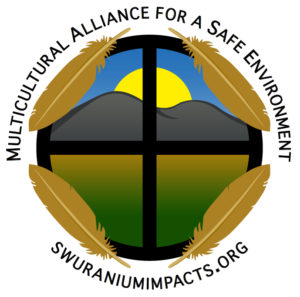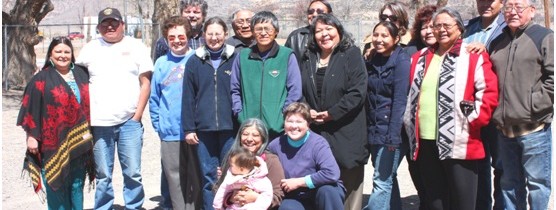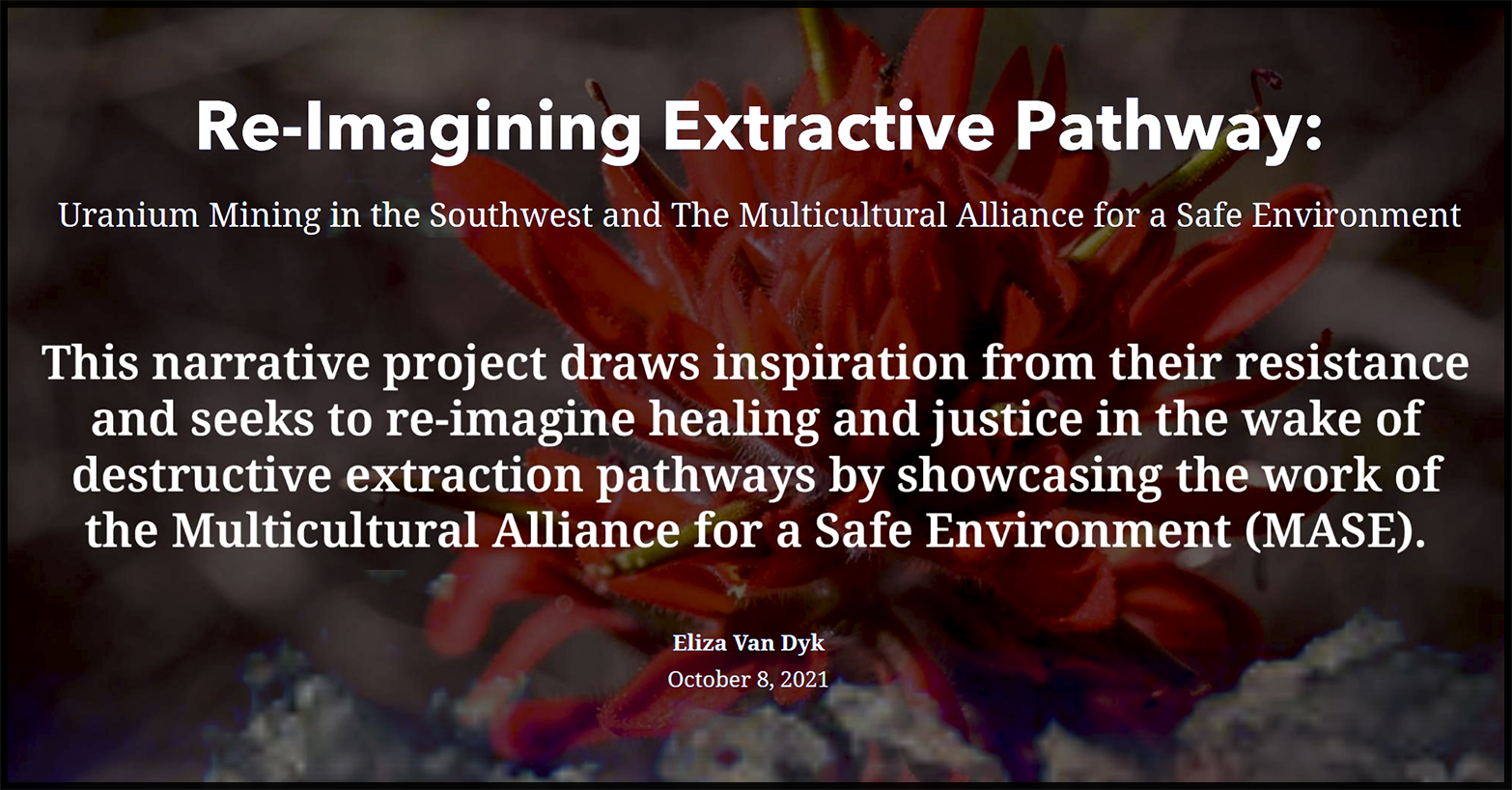Environmental Justice Policy Statement
Environmental Justice Policy Statement:
The Multicultural Alliance for a Safe Environment (MASE), a coalition of local groups within the Grants Uranium Mining District (GMD) of Northwest New Mexico, is founded upon principles of environmental justice which seek to protect our air, land, water, and health for present and future generations.
To this day, residents within the GMD continue to be over-burdened with legacy contamination throughout our environment since the advent of uranium mining and milling in the 1950s. Initially, the mining industry in this region operated with minimal regulatory oversight until the late 1970s, when state and federal authorities began to adopt and enforce more stringent regulations designed to protect human health and the environment from the adverse impacts of mineral extraction.
In fact, our regulators have allowed the mining industry to lower cleanup standards – below what is required to adequately protect our health from continuing radioactive exposure.
MASE members are committed to working with the New Mexico Environment Department, US Forest Service, Environmental Protection Agency, Nuclear Regulatory Commission, and other regulators as equal partners to ensure that they strictly enforce all regulations which protect our health and the environment.
MASE will work towards the elimination of all exemptions and waivers that impose unjustifiable risks on human health and the environment. For too long, the mining industry has been exempted from shouldering the true costs of mineral development at the expense of our communities – permanently lacing our air, water sources, and soil with radioactive and toxic contamination.
Environmental Justice Principles:
1. The Grants Mining District must be designated as an Environmental Justice Zone by all regulators to ensure that uranium-impacted populations are treated the same as non-impacted communities.
2. The United Nations Declaration on Human Rights and other federal and state environmental laws require public disclosure of all uranium mining project risks to human health and the environment.
a. Communities exposed to unacceptable health and environmental risks must give their free, prior, and informed consent to new uranium extraction projects.
3. All regulations should be based on the best available science, and their implementation guided by the best available technology, with the expertise of the affected community.
a. The hydrogeologic features of all uranium project sites should be characterized prior to the startup of any new projects, including the existence of all potential drinking water supplies and seismic risks.
b. Baseline surface and groundwater quality should be established to safeguard past, present, or future regional drinking water supplies prior to the startup of any new projects.
i. Standards should be maintained to protect drinking water sources and the public health, not relaxed to reduce the cost of clean-up efforts.
ii. The burden of proving the need for waivers and exemptions from regulatory requirements must be science-based, not cost-based.
iii. Cost-effective measures must not be tolerated if they pose unacceptable risks to human health.
4. All hazardous and radiological waste produced by any past or present uranium project must be inventoried, characterized, and monitored by industry and the regulators.
a. Notice of all past and present releases of contaminants to workers and members of the public should be made available by the regulators to the public in order to obtain their informed consent to keeping hazardous and radiological waste within our communities.
5. Uranium project operators and regulators must ensure a safe, healthy work environment for all uranium workers.
Conclusion:
MASE will continue to seek the cleanup of all uranium legacy sites within the Grants Uranium District and to eliminate all sources of toxic contamination. MASE will seek adequate compensation and medical treatment for all uranium workers and residents whose health has been harmed.
MASE will further work in solidarity with other groups to eliminate environmental injustice and to achieve sustainable uses of our public lands – prioritizing the use of renewable resources over finite reserves that waste water, pollute our environment, and compromise our health.
Our membership values less consumption of the Earth’s resources in order to ensure the health of the natural world for present and future generations.
May 2015
Read complete Environmental Justice Statement EJ statement






